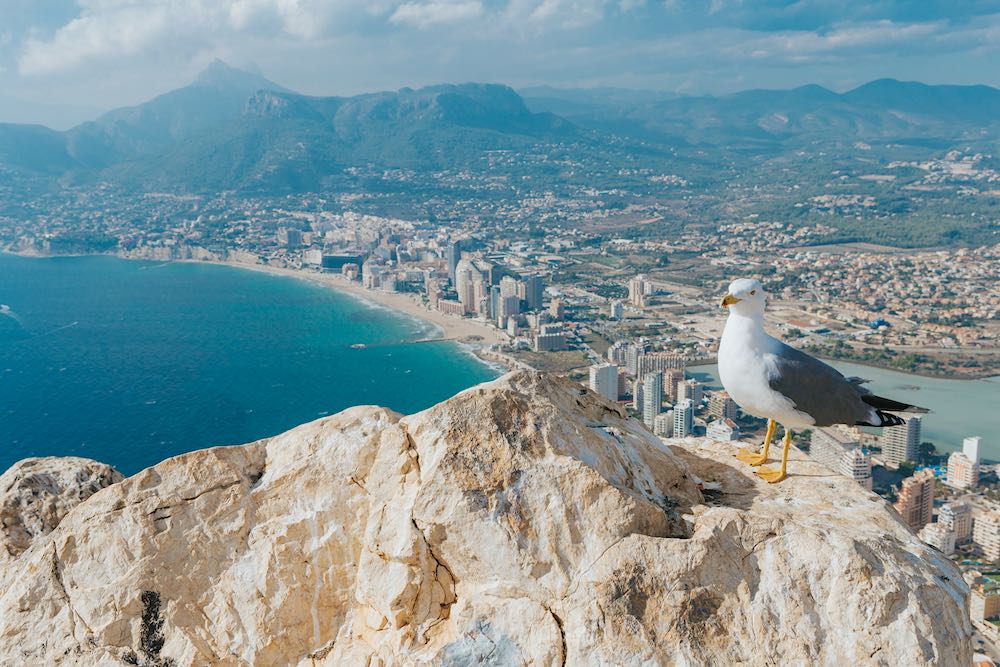
All You Need To Know About Calpe’s Magic
Calpe is one of the most visited destinations of Costa Blanca in Spain. It belongs to the Valencia community and has always been a territory in dispute because of its invaluable location. But there’s much more than that to this beautiful town that is as much a trip to the past as it is a journey to pleasure.
Calpe, A Collection Of Histories
Calpe is not a place with a single history that can be told linearly; it is a recollection of different stories. In this vein, the first to populate the area were the Iberian tribes whose remains were found by archeologists surrounding the area.
Following this, the Phoenicians took over for centuries until they were overthrown by the Romans. They transformed Calpe (using that name for the first time) into a prosperous colony.
Of Romans, Moorish, And Catholics
The first moments of Calpe as a town, after being funded by Romans were entirely given to the production of salty fish. For this endeavor, the Romans built a fish salting factory in the region. Furthermore, when Calpe became a Roman colony, the occupants built several buildings that can still be appreciated.
For example, the Queen’s Baths (Los Baños de la Reina) can still be appreciated close to the present-day promenade.
After the fall of the Roman Empire, the Moors built the Castle of Calpe at a strategic spot from which they were able to control the entire area. Their ruling of the region was brought to an abrupt end when the forces of King Jaime I defeated them in 1240.
During that time, the fortifications built on the Rock of Ifach were destroyed and the population fled. The farmhouse in which they settled, overlooking the Bay of Calpe was the initial spot around which the new town of Calpe (as we know it today) was formed.
Three Centuries Of Pirate Attacks
In the following centuries, Calpe received a plethora of attacks coming from pirate ships. In the year 1659 especially, the town was completely sacked and 300 citizens were taken as prisoners to Algiers. They were given back to the city only after paying a hefty ransom in gold and releasing pirate prisoners.
Peace, Love & Tourism
As the years went by, though, pirate attacks became less frequent and by the end of the 19th century and beginning of the 20th century, Calpe started attracting tourism. This was because the town developed into a pushing industry for salt and fish (there are natural sand flats in Calpe).
This development was transformed into coastal hotels that were soon full of middle-class occupants. Moreover, the ‘60s became the golden era for Calpe tourism. Since routes became more accessible and the transport efficiency attracted people from all over the world.
Nowadays, it is possible to find in Calpe a unique mix of influences and historical times that make it a unique sight in the region and the world.
Some of the places you need to see when you’re there are:
- The Rock of Ifach – Rising 332 meters over the water level, this place offers awe-inspiring views. Just beware because it is a tough climb not suitable for the youngest, eldest, or pets.
- Town sightseeing – Walking the narrow little streets of the town is an experience in itself. Go out, get lost, and marvel at the views.
- Golf – The Ifach Golf Course can offer the player everything needed to play golf in paradise.
- Cuisine – With so many civilizations leaving a mark, the food scene in Calpe is varied, rich, and beyond tasty. Make sure you try Mediterranean dishes at their best.
Conclusion
Calpe is a destination that can be labeled as a journey too. You’ll be traveling in time and space to some of the most remote times in Spanish history and enjoying uncanny landscapes at the same time. If you feel like spending a season in paradise, you have to go to Calpe.